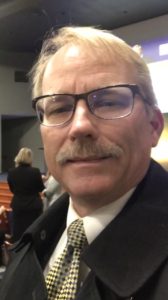Millions of children and adults have read with excitement and interest her books, now the Board of the Association for Library Service to Children (ALSC) voted unanimously to rename the Laura Ingalls Wilder Award as the Children’s Literature Legacy Award.

Laura Ingalls Wilder’s name has fallen to political correctness having been removed from the award that bears her name.
The ALSC, a division of the American Library Association (ALA), voted at a meeting in New Orleans to remove the name of Laura Ingalls Wilder from a children’s book award named for her due to her portrayals of American Indians (particularly of the Osage Indian tribe) as particularly brutal. The award has been given since for almost 65 years (since 1954) by ALSC. Ironically, the Library Association which claims to champion intellectual freedom is now downgrading a key author of a major piece of Americana and stripping Laura Ingalls Wilder’s name from the children’s literature award named for her.

The TV series by the same name as the book, “Little House on the Prairie” co-starred Michael Landon.
Wilder, born in Wisconsin in 1867, spent her childhood on the American frontier with her pioneer parents and siblings. The Little House series was based on Wilder’s own life and told the story of the Ingalls family as it moved around the Great Plains in the 19th century. She was portrayed by Melissa Gilbert in the TV series by the same name as the book, “Little House on the Prairie” (co-starred by Michael Landon). Wilder is best known for eight books about pioneer life in the American West. Wilder died in 1957.
History shows that the Osage Indians she wrote about in her series were guilty of a number of atrocities, proving Laura Ingles Wilder factually correct. In 1833 a group of Osage Indians committed the Cutthroat Gap Massacre, where they brutally murdered 150 women, children and elderly Kiowa Indians left unattended by their men who were off hunting for food. According to biographer Pamela Smith Hill, the Osage nation still condemns her work which contains a line that states when Wilder and her family arrived in Kansas there were “no people, only Indians.”

Melissa Gilbert and Michael Landon in an episode of “Little House on the Prairie.”
Author Chris Queen writing in PJMedia said “Wilder filled her account of frontier life in the American Midwest — based on her family’s own experiences — with vivid scenarios and evocative characters, which is the main reason for the decades of appeal that her novels have had on young readers. Those books are full of details, some of which reflect a much different era in regard to women and minorities. But Wilder’s works aren’t meant as a manual for interpersonal relations; rather, they’re a reflection of a portion of our nation’s history, warts and all.” He continued,
“Unfortunately for the modern left, Wilder’s books aren’t sufficiently politically correct.”
The New York Post Editorial Board said, the ALA “was more on the mark in 2011 when it defended Mark Twain’s classic “Huckleberry Finn” against efforts to edit out his use of the n-word.” At that time the ALA told the Chicago Tribune “Children deserve the chance to read the book thoughtfully and in its entirety and to understand and to ask questions about why [Twain] used the word.”
The removal of Laura Ingall’s name from the children’s book award has stirred an unusual amount of public comment and has been labeled “a flagrant example of political correctness” and an “attempt to rewrite history to exclude the culture and historic observations of European Americans.”
Queen said “Erasing the descriptions of history does not mean that the events never took place. And denying an honor to such a superb chronicler of history as Wilder does more of a disservice to her fans and the practitioners of her legacy than it does a service to the people hurt by her characters’ words.” He concluded that “Wilder’s sin was that she failed to display political correctness decades before political correctness was even a movement.”
Michael Reed is Editor of The Standard, a pastor, businessman and conference speaker.




 RSS - Posts
RSS - Posts
The left seems to think the only evil lives in the hearts and minds of whites. You do not have to be PC but you do need to be honest, and the left is not honest in the telling of history